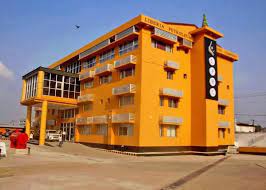The Plight of LPRC’s Redundant Employees: A Nineteen-Year Struggle for Justice
The protracted legal battle between the redundant employees of the Liberia Petroleum Refining Company (LPRC) and the company’s management has cast a long shadow over Liberia’s judicial system, raising concerns about the timely delivery of justice and its impact on the lives of ordinary citizens. Since 2006, when over 400 employees were laid off under a "right-sizing plan," these individuals have sought legal redress, claiming unfair labor practices and wrongful dismissal. Their journey through the courts has been marked by delays, setbacks, and the tragic loss of 92 of their colleagues, who succumbed to the stress and despair of their prolonged legal limbo.
The initial redundancy exercise, implemented during the administration of former President Ellen Johnson Sirleaf, drastically reduced the LPRC’s workforce from 750 to approximately 250. The affected employees contend that the downsizing was not only unjust but also politically motivated, alleging that shortly after their dismissal, new employees were hired. Their quest for justice began in 2009 when they filed a formal complaint with the Labour Court of Liberia. This initial step marked the beginning of a protracted legal struggle that would span nearly two decades, encompassing multiple court hearings, appeals, and agonizing periods of waiting.
The case eventually reached the Supreme Court of Liberia, the highest judicial authority in the country. In 2018, under the leadership of former Chief Justice Francis S. Korkpor, Sr., the Court heard the first arguments but reserved its ruling. Years later, in 2023, the Court, now under the leadership of Chief Justice Sie-A-Nyene G. Yuoh, heard a second round of arguments, again reserving its ruling. This pattern of hearings followed by extended periods of silence has left the remaining redundant employees in a state of deep frustration and uncertainty. They have expressed their disappointment with the Supreme Court’s handling of their case, arguing that the persistent delays constitute a denial of justice.
The human cost of this prolonged legal battle is undeniable. The death of 92 of the original claimants speaks volumes about the toll this protracted struggle has taken on the individuals and their families. Left without their livelihoods and facing an uncertain future, many have succumbed to despair, leaving behind families grappling with economic hardship and emotional distress. The surviving claimants continue their fight, driven by a desire for justice and a sense of responsibility to the memories of those who have passed away.
In April 2025, the remaining redundant employees addressed a written communication to Chief Justice Yuoh, reiterating their plea for a timely resolution. They expressed their deep frustration and emphasized the urgency of the situation, highlighting the emotional and financial strain they continue to endure. Their appeal directly addresses the fundamental principle of justice – that justice delayed is justice denied. They argue that the Supreme Court’s failure to render a decision after multiple hearings and years of deliberation is a disservice to them and a broader reflection on the effectiveness of the judiciary in addressing the needs of its citizens.
This case represents more than just a labor dispute. It encapsulates the challenges faced by many Liberians seeking redress through the legal system. The delays, the complexities, and the emotional toll highlight the need for greater efficiency and transparency within the judiciary. The LPRC redundant employees’ plea for a ruling is not simply a call for closure in their own case, but also a call for a more responsive and effective justice system in Liberia. It is a case that speaks to the broader issue of access to justice and the importance of ensuring that the courts fulfill their role in upholding the rights of all citizens, regardless of their position or circumstance.














